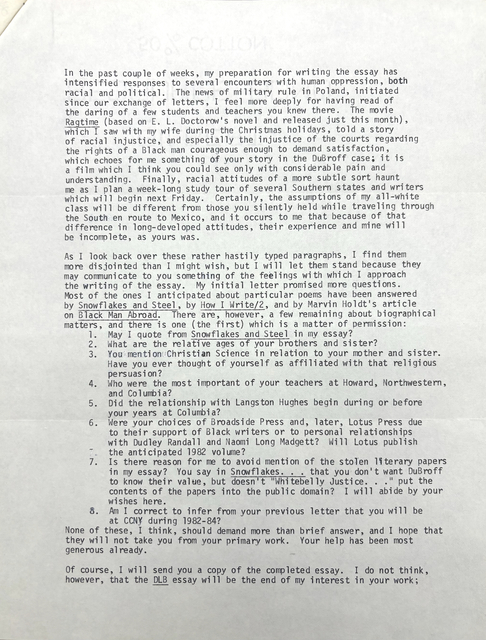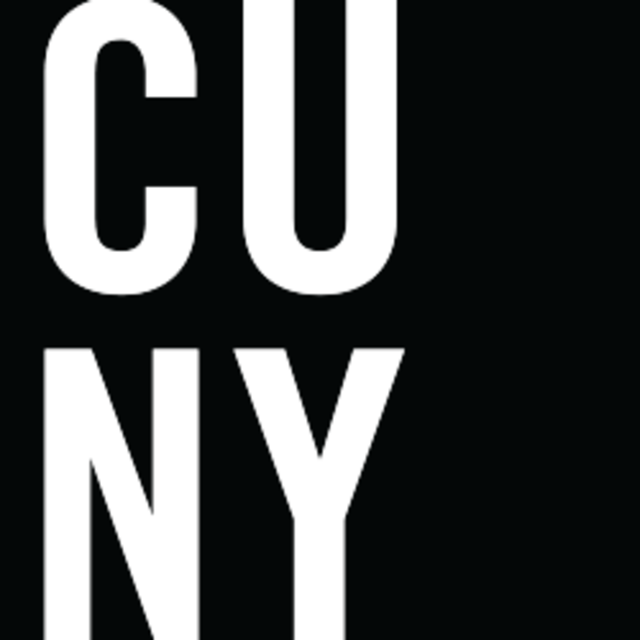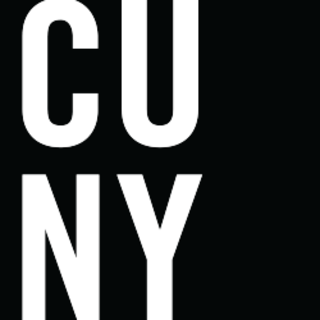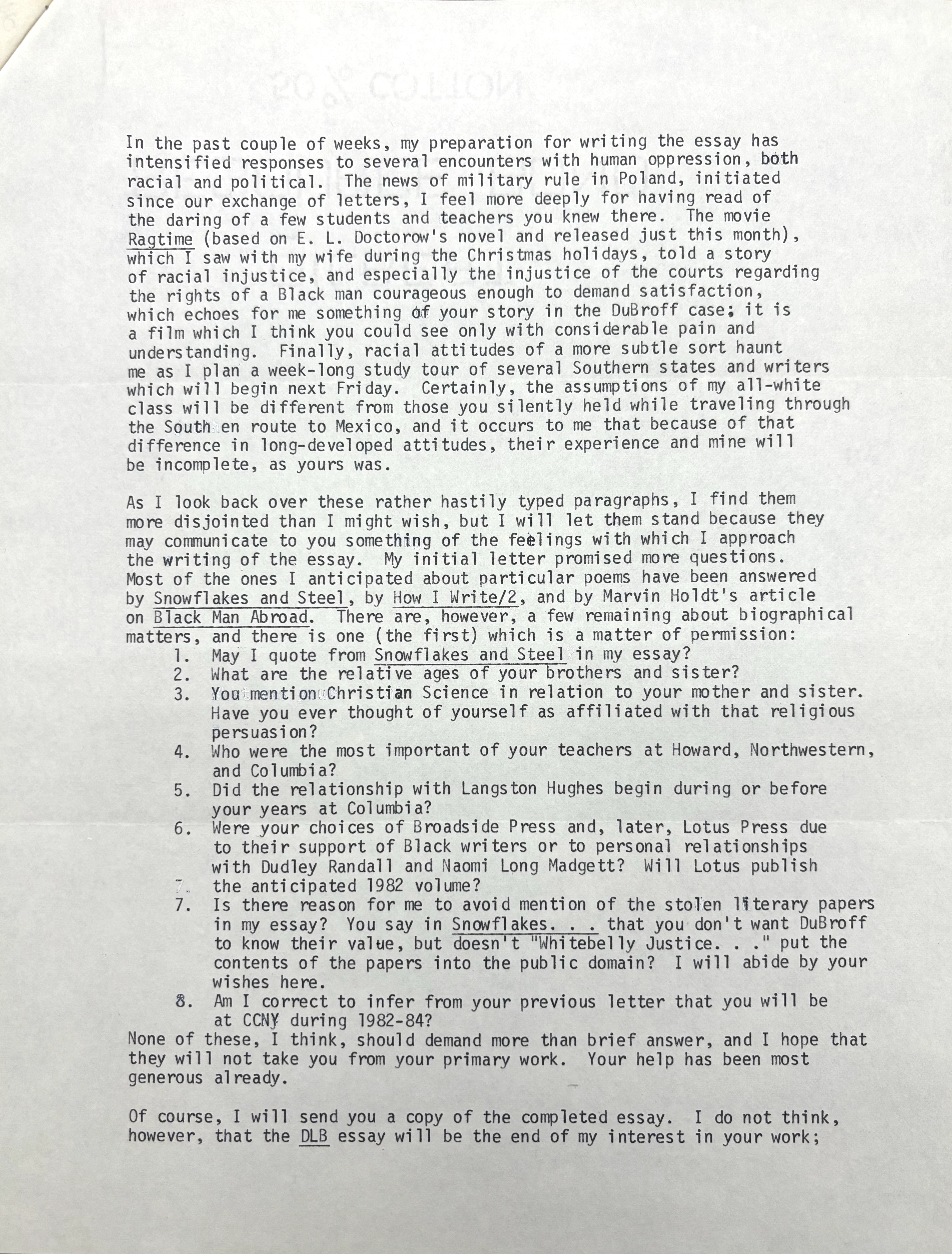Skip to main contentResource added 
Second Letter from Douglas Watson (page 2 of 3)

Full description
Typed letter from Douglas Watson to James Emanuel, dated January 1, 1982. Watson writes that he enjoyed Emanuel's autobiography and claims that his poetry is revolutionary for the whole of Black writing. Watson also asks clarifying questions for his essay on Emanuel. (Page 2)
Comments
to view and add comments.
Annotations
No one has annotated a text with this resource yet.
- typeImage
- created on
- file formatjpg
- file size12 MB
- container titleJames A. Emanuel Papers
- creatorDouglas Watson
- issueBox 4 Folder 7, Watson, Douglas, 1981-1993
- rightsJames A. Emanuel Estate
- rights holderJames A. Emanuel Estate
- version1-Jan-82


